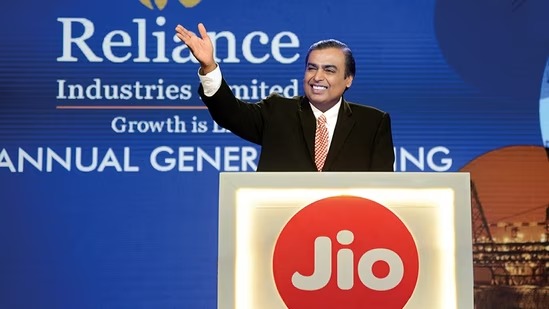Vineet Saran, J.@mdashThe Petitioner was a Constable in the Civil Police. On 28/29.10.1995, when the Petitioner was posted in the Complaint Cell at Ballia, he was arrested from platform No. 1 of the Railway Station, Ballia. In a highly intoxicated state and in police uniform, he was troubling the passengers and hurling abuses on them as well as creating panic on the platform. The two other constables, who were posted at the platform for maintaining law and order, caught him in such position. After his arrest, the Station Officer, Government Railway Police sent him for medical examination. Thereafter, a departmental enquiry under the U.P. Police Officer of Subordinate Rank (Punishment and Appeal) Rules, 1991, was conducted in the matter. The Petitioner was issued a show cause notice and on consideration of his reply as well as the other materials on record, the Petitioner was found guilty. In the absence of any satisfactory reply given by the Petitioner, all the charges stood proved against him. Based on the enquiry report, the Respondent No. 3, Superintendent of Police, Ballia, by his order dated 1.3.1996, terminated the services of the Petitioner. The Petitioner preferred an appeal before Respondent No. 2, the Deputy Inspector General of Police, Azamgarh, which was dismissed on 9.6.1996. Against the said order the Petitioner filed a revision before Respondent No. 1, the Inspector General of Police, Varanasi Zone, Varanasi, which was also dismissed by order dated 11.8.1999. Hence, this writ petition has been filed challenging the said orders dated 1.3.1996, 9.6.1996 and 11.8.1999, by the Superintendent of Police, Ballia, the Deputy Inspector General of Police, Azamgarh and the Inspector General of Police, Varanasi Zone, Varanasi respectively.
2. The main contention of the learned Counsel for the Petitioner is that the Petitioner was not given adequate opportunity of hearing before passing the impugned orders. It has been submitted that the Petitioner was not given a copy of the medical report on the basis of which the Respondents held that the Petitioner was in a state of intoxication at time of his arrest. It was thus, urged that prejudice had been caused to the Petitioner and as such the impugned orders are liable to be set aside.
3. Having heard learned Counsel for the parties and on perusal of the record, I am not inclined to interfere with the impugned orders passed by the authorities. The findings of fact recorded by the authorities are very clear and based on the evidence as well as materials on record. The Petitioner was a constable in the civil police, which is a disciplined force. The conduct of the Petitioner, by creating nuisance under the influence of liquor, at a public place and in police uniform, is most unbecoming of a member of a disciplined force. Findings of fact are not normally interfered with in writ jurisdiction under Article 226 of the Constitution of India.
4. Learned Counsel for the Petitioner has submitted that adequate opportunity of adducing evidence was not afforded to the Petitioner as the Respondents did not provide him the copy of the medical report on the basis of which it was held that he was arrested while in a state of intoxication. In support of his submission he has relied on a decision of the Apex Court rendered in Hardwari Lal v. State of U.P. and Ors. 2000 (1) AWC 96 (SC): (2000) 1 UPLBEC 331. In the said case the service of one police constable was terminated for hurling abuses at another police constable while he was under the influence of liquor. The termination was set aside by the Apex Court on the ground that the two key witnesses, the complainant and the other sole witness of the incident, had not been examined. The ratio of the said judgment would not apply to the facts of the present case. The Petitioner had not been able to show before the authorities or before this Court that he was not present at the place of the incident or that the case against him is fabricated or false. The learned Counsel for the Petitioner has also not been able to establish before this Court that he had ever asked for a copy of the medical report. No such averments have been made in the writ petition. It is for the first time by a supplementary-affidavit, which has been filed only today during the course of hearing that a photocopy of a letter addressed to the Superintendent of Police, Ballia, has been filed whereby a copy of medical report had been asked for. Apparently the alleged letter/application is of February, 1996. No receipt of the said letter has been filed. Further, despite time having been granted by this Court on 15.2.2002, the Petitioner has not placed on record his reply to the show cause notice. From the said reply, the stand of the Petitioner could have been clear as to whether at the initial stage he had asked for a copy of the medical report or not. Thus, from the facts of this case, it cannot be said that the Petitioner was not given adequate opportunity of adducing evidence.
5. In my view, departmental proceedings cannot be vitiated merely on the ground of technicalities pertaining to the conduct of enquiry. The Hon''ble Supreme Court in Bank of India and Anr. v. Degala Suryanarayana : 1999 (3) AWC 2.103 (SC) (NOC): (1999) 5 SCC 762, has held that strict rules of evidence are not applicable to departmental enquiry proceedings. The only requirement of law is that the allegation against the delinquent officer must be established by such evidence, acting upon which a reasonable person acting reasonably and with objectivity may arrive at a finding upholding the gravamen of the charge against the delinquent officer. The Apex Court in
6. In my opinion, no good ground for interference with the impugned orders has been made out. This writ petition lacks merit and it is accordingly dismissed without there being any order as to costs.
7. In the end the learned Counsel for the Petitioner has submitted that the punishment of dismissal from service is disproportionate to the charge of misconduct in the present case. Learned Counsel for the Petitioner has relied on a Division Bench decision of this Court rendered in Union of India and Ors. v. Bishambhar Nath Mishra and Ors. (2001) UPLBEC 864, wherein this Court held that in appropriate cases and for cogent reasons, this Court or the Tribunal can reduce the punishment. Although the power may be vested in this Court, but considering the fact that the Petitioner, who was the member of a disciplined force and his been found guilty of grave misconduct, the circumstances do not warrant the reduction in the quantum of punishment in the present case.

